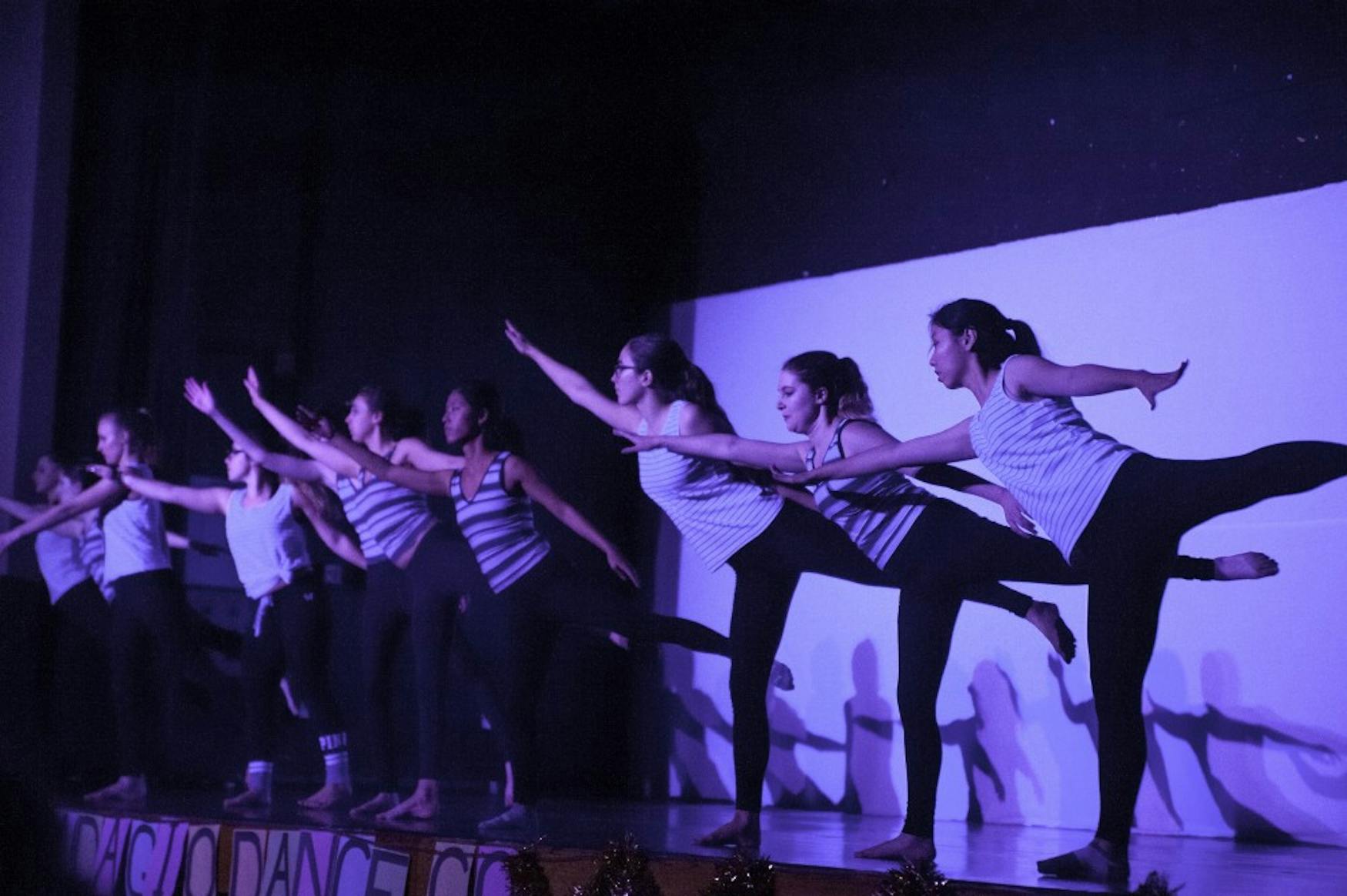Adagio reminds us of the power of art
Review — Last Thursday night was a busy one for the arts at Brandeis, with Adagio’s “Throwback Thursday DanceFest,” “Once Upon a Mattress” and “Turkapalooza” all taking place in one night. For those of us who chose to see Adagio, the evening was full of awkward but amusing emceeing, some throwback (and not so throwback) jams and dancing of all forms.
The show took place in Levin Ballroom and consisted of 25 performances with more than 60 dancers. Some members performed in multiple pieces, showing off their ability to transition between dance styles and suggesting a plethora of behind-the-scenes costume changes. Many routines were blends of modern and hip-hop, with a few more distinctive styles from the Ballet Club, Hooked on Tap and B’yachad, Brandeis’ Israeli folk dance group. Adagio is an all-inclusive group which holds placements rather than tryouts, so the performers ranged in skill from beginner to more experienced.

ICY ATTITUDE: The Ballet Club performed “Waltz of the Snowflakes” from “The Nutcracker.”
In some pieces, the beginners’ nerves were more obvious, evident in the dancers’ pensive faces, choppy motions and frequent glances at the members of the group who really had the steps down. Other dances, especially those of the exclusive, higher-level subgroup of Adagio called the “Dance Ensemble,” were quite impressive. Experienced dancers who trust their bodies to move seamlessly with music are some of the most beautiful sights, and the audience was definitely captivated by such confident dancers.
Although all of the dances, regardless of level, were entertaining, some performances stood out for more than just the moves. Many choreographers chose to use this platform to comment on some of the personal experiences, positive and negative, that reflect the human experience. These performances were especially meaningful and elicited a greater response from the audience.
“Love on the Brain,” performed by “Dance Ensemble,” started off the night with a stunning representation of the experience of love. This piece was choreographed by Emma Hanselman ’18 and Daniella Cohen ’18. The dancers wore tastefully revealing black silk nightgowns, adding to the allure and the allusion to love. Other pieces that continued the theme of love included “Gimme All Your Love” choreographed by Liv Molho ’20 and “Cosmic Love” choreographed by Samantha Jean ’19 and Haley Director ’20; however, neither were as powerful as the first performance.
“Carmen,” choreographed by Maura Koehler ’19 and Yvette Sei ’20 was an exceptionally fun, sassy piece that addressed the very common twenty first century issue of phone addiction.
Amanda Ehrmann ’18 choreographed “Still Roaming,” which spoke to the experience of losing touch with one’s youthful spirit during the transition into adulthood. The routine began with more regimented, lackluster moves until the dancers symbolically threw off their ties and then spun into youthful exuberant dancing.

LIMBS OF LANGUAGE: “Human” choreographed by Julie Joseph ’18, was performed by the Dance Ensemble.
Some of the pieces addressed the darker side of the human experience, covering emotional topics such as body image, depression, mental illness, domestic violence and the fear of life’s unknowns. Of these, “Human,” choreographed by Julie Joseph ’18, really stood out. Dancers in this piece wore either red or black shirts, setting up a visual of the abuser-abusee dynamic. This was also the only dance that made use of props. For each pair of dancers, a chair was used to emphasize the power struggle throughout the piece. The conclusion showed the abusee taking control and confidently marching off stage with their chair, leaving all of the batterers alone on the stage.
—Editor’s note: Yvette Sei ’20, one of the Photography editors of the Justice, and Lizzie Grossman ’18, an associate editor of the Justice, are both in Adagio.



Please note All comments are eligible for publication in The Justice.